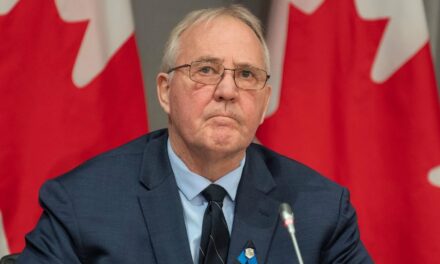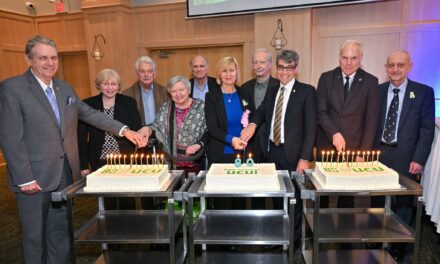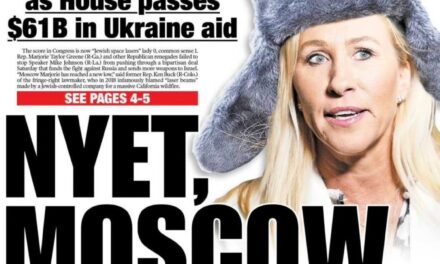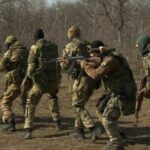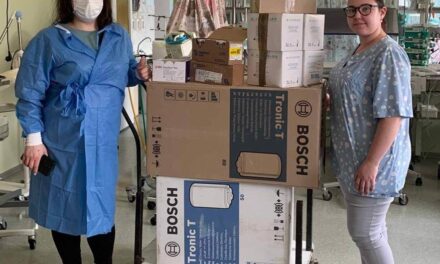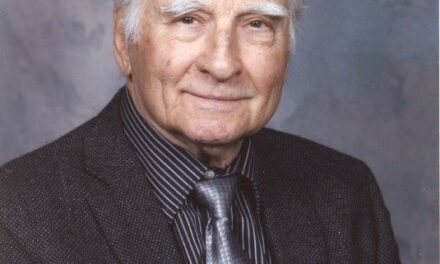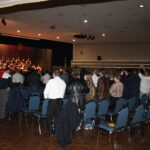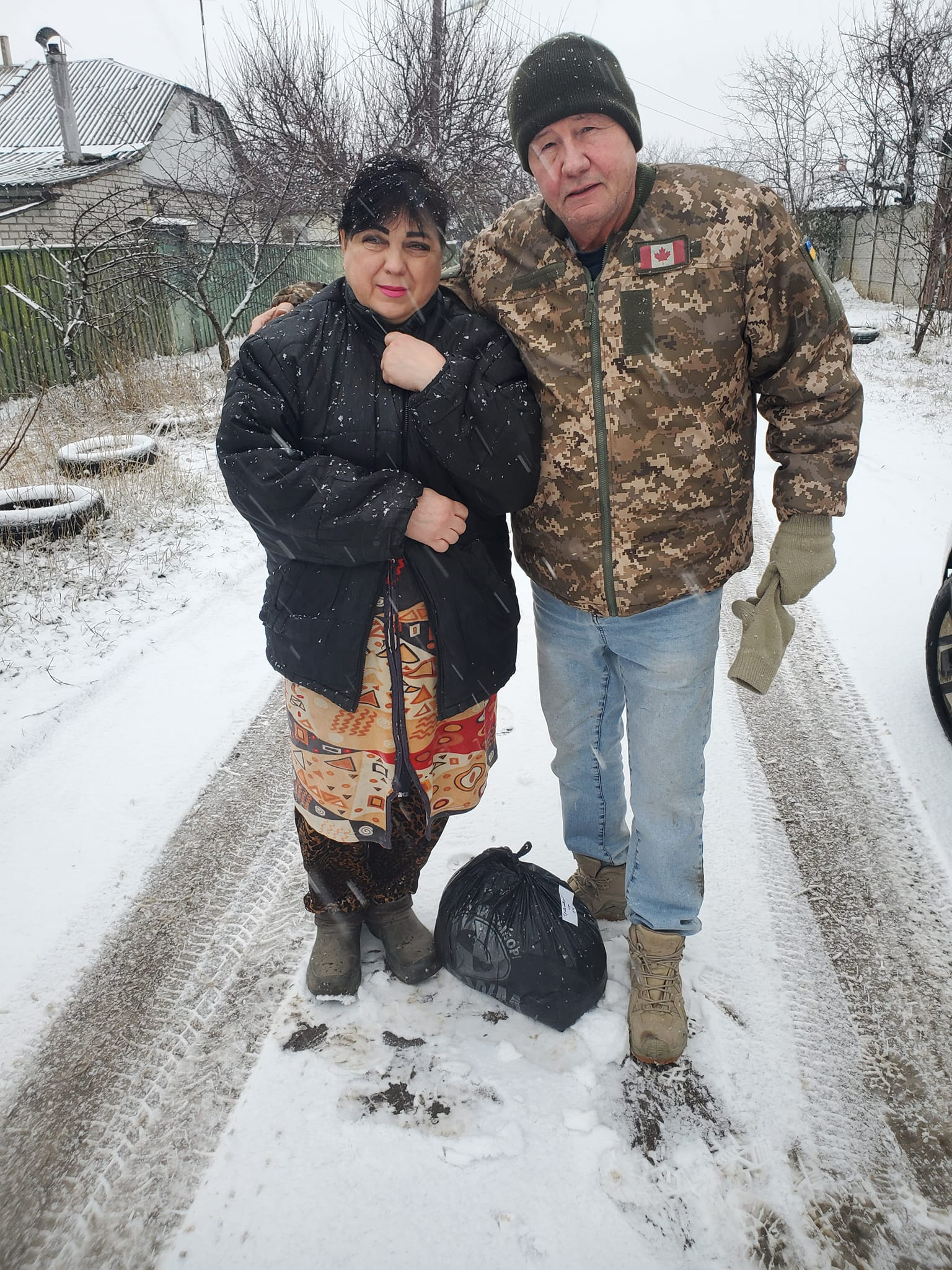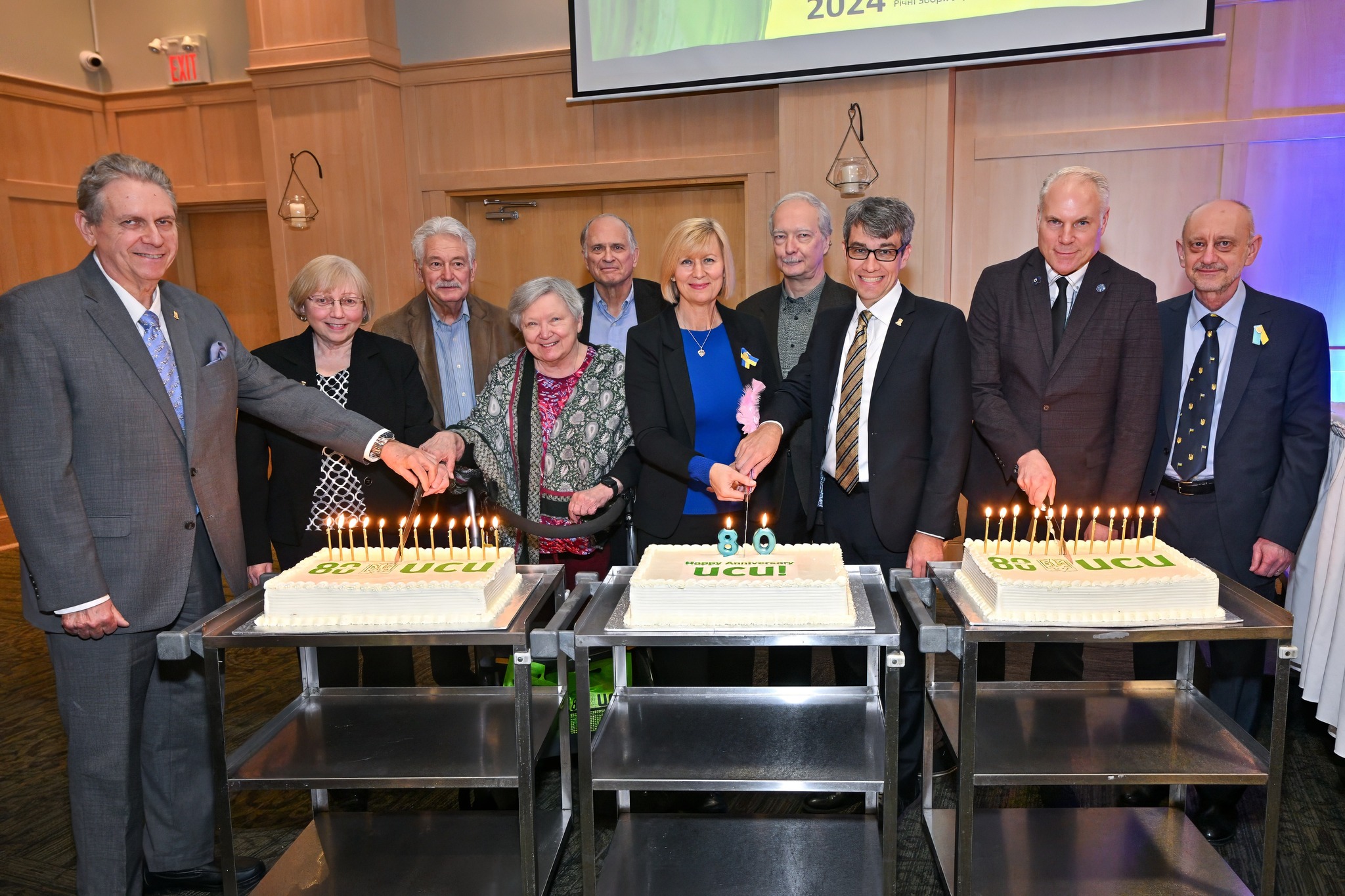Margaret Dinsdale
For NP-UN
It is almost 11 o’clock at night in Kharkiv and it is quiet in a city under blackout orders. The night before, Canadian comedian Mike Bullard had shared on social media a short clip taken from his hotel window. Heard over the darkened city was the unmistakable low booming of Russian shells.
It’s Thursday, February 9, 2023, as we speak on Facebook Messenger and there are no sirens and shells this night, at least so far. Mike is tired and about to go to sleep before a trip to Kyiv tomorrow, on his way back to Canada after several months in the war-savaged country. But first he wants to talk about his experiences, having done service in Kharkiv, near Bakhmut, in Dnipro, and, last but not least, in Kherson; he wants people to know what is actually going on.
“I first arrived in Lviv, which is basically Toronto with less potholes,” he said. “It’s where all the international volunteers start out. People like me come from all over the world and get plugged in through the Ukrainian volunteers and small humanitarian organizations. We put aside all our differences, whatever they were, and just focussed on what we are here to do.”
Through a web of Ukrainian volunteer organizations around the country, needs are identified and the new arrivals are directed to different places where help is needed the most, many deployed from Kyiv.
Orest Haluszka is a Ukrainian-Canadian community organizer in Toronto who has sponsored a Canadian soldier currently on the front line in Bakhmut. He says volunteers are badly needed everywhere.
“All sorts of volunteers are needed for different things, food production, medical assistance, children in orphanages, abandoned animals, you name it,” he said. “I spoke to a woman who was going there just to work with the animals. You don’t need to have a plan when you leave Canada. As soon as you get there you will find many volunteer organizations based around the country who will link you up.”
“For the first four weeks I was in a kitchen, Hell’s Kitchen, in Kharkiv,” Mike said. “Igor and Luda run it and it goes 24 hours a day. I wasn’t that useful in the kitchen itself so they put me with one of their employees to deliver meals, up to 1000 a day.”
Those meals were given to civilians as well as soldiers who would then take them to the front lines.
“Of course food is very important,” says Orest Haluszka. “Organizations like World Central Kitchen arrived in Ukraine days after the start of the war and continue to feed people wherever there is a need, which is pretty much everywhere.”
After a month delivering meals, Mike met Ben Dusing, a lawyer from Kentucky, while they were evacuating a soldier from Bakhmut. Ben was doing riskier missions and Mike signed on, going to places where people still lived. They started delivering food from World Central Kitchen among other needed supplies.
Why hasn’t everyone left places like Kherson?
“For many reasons. I spoke with a single mother who, like others, went to Poland when the war started,” Orest says. “But it was too expensive for her there so she had no choice but to come back to Ukraine.”
Mike was always thinking of children, buying hundreds of dollars in chocolate for the kids in Kherson, for example, who were thrilled to get a treat.
“I also helped give two hundred kids a Christmas party in Kharkiv. People in Canada sent me money and with some of my own I bought toys and treats, every kid got what they asked for. The kids in Ukraine break my heart. I saw one young boy with what I thought was a birthmark on his face and was told it was a phosphorus burn from a shell.”
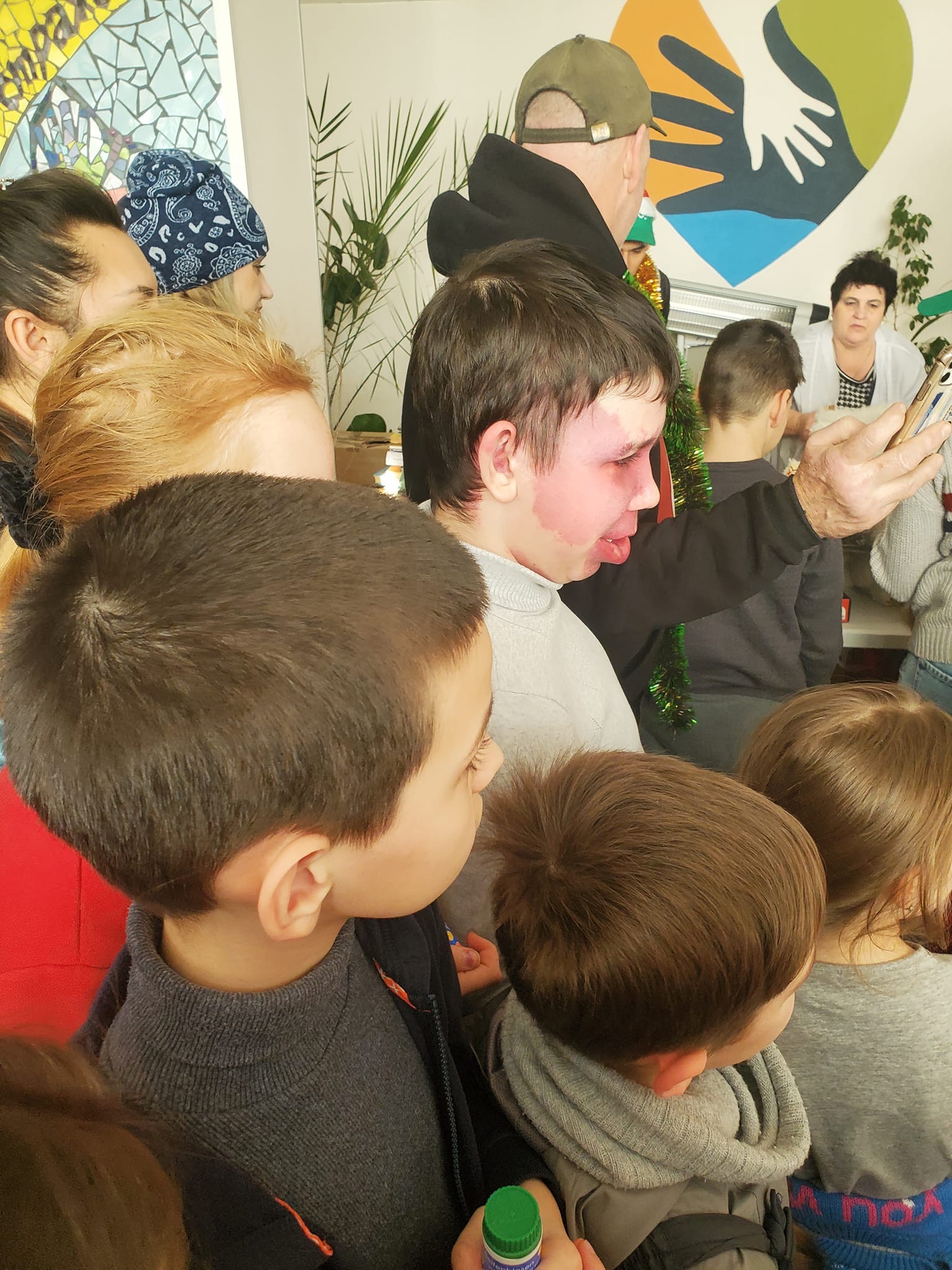
A child with a phosphorus burn from a shell on his face at the Christmas party in Kharkiv on January 11 Photos: Mike Bullard
One of the toughest things was witnessing the bodies of two young children being pulled from the wreckage of an apartment building in Dnipro, hit shortly before they arrived. He figures he’ll need to see a therapist when he gets back.
“The last mission we did was a week in Kherson, we brought seven wood stoves and other supplies there,” Mike explained. “It was like going to hell. After a couple of days I noticed that there were never any air raid sirens because the shelling goes on twenty-four hours a day. You just get used to it, you can’t worry about it or you’d never sleep. Most of the people there, those who aren’t young volunteers, were elderly people. We carried one older woman out of her house and evacuated her to a seniors’ home 120 kilometres away.”
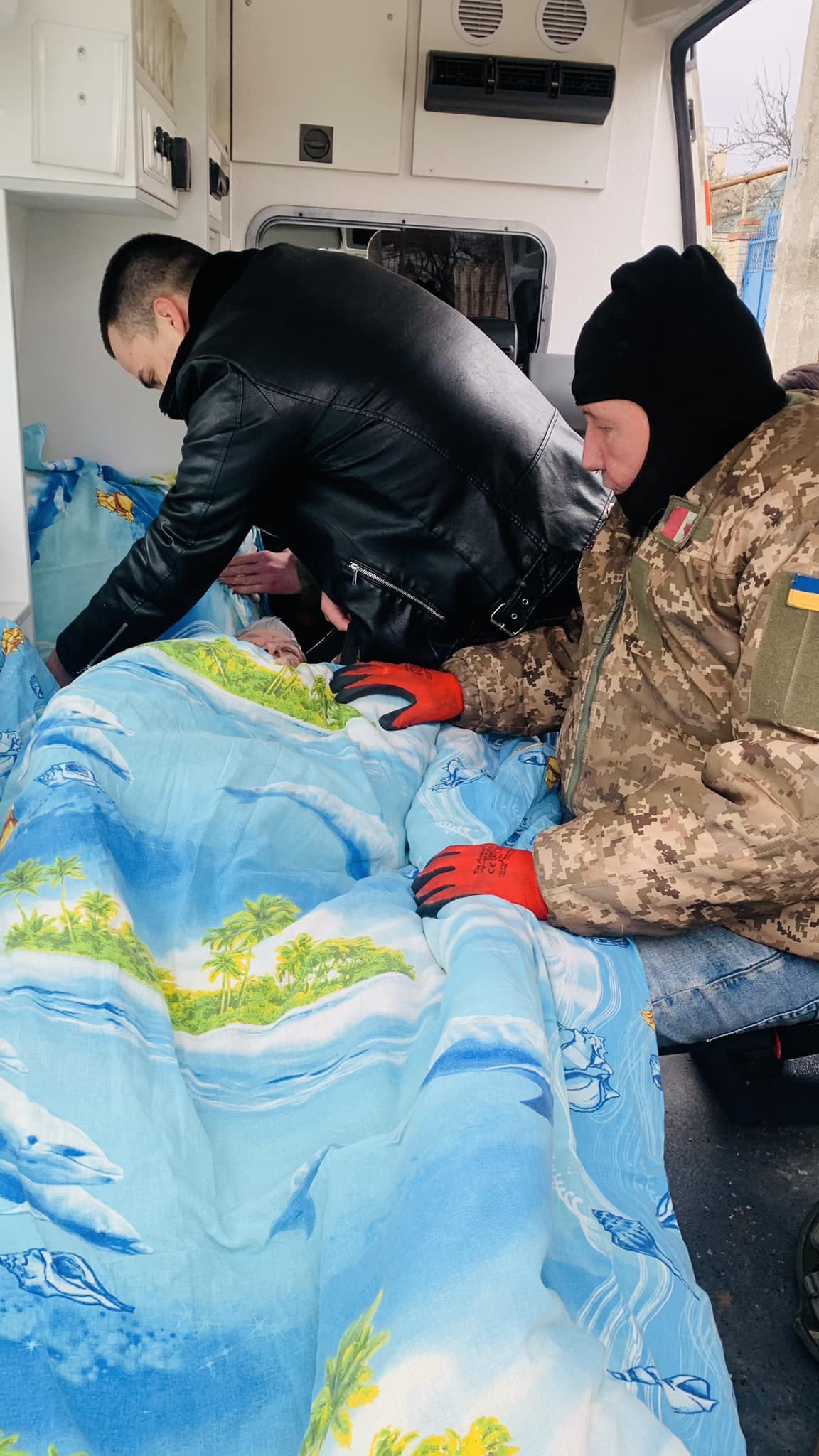
Mike helps evacuate older lady in Kherson on February 5
And one night a shell struck not far from where they were staying.
“It killed 23-year-old Vitali, hopefully in his sleep” he said. “That day we had to clear the house, carrying out his bloody mattress and pillow. His wife and mother were coming back to the house later that day because they had nowhere else to go. I don’t know how they do it.”
Mike described the reaction to people seeing the Canadian flag on his jacket.
“The Ukrainian people are amazing, they all have some form of PTSD but they carry on with their lives as best they can. I’ve had people who, when they saw the flag on my jacket, fell on their knees and told me how grateful they are that we’ve come to help them. Some of them would start crying which made me cry, it’s really something.”
He became friends with a taxi driver in Kharkiv who, it turned out, was an engineer but with no work was driving the cab. Andrey invited Mike to his home for dinner with his family and, later, they did a one-day mission delivering supplies that would go to the front lines. Mike has many stories like this.
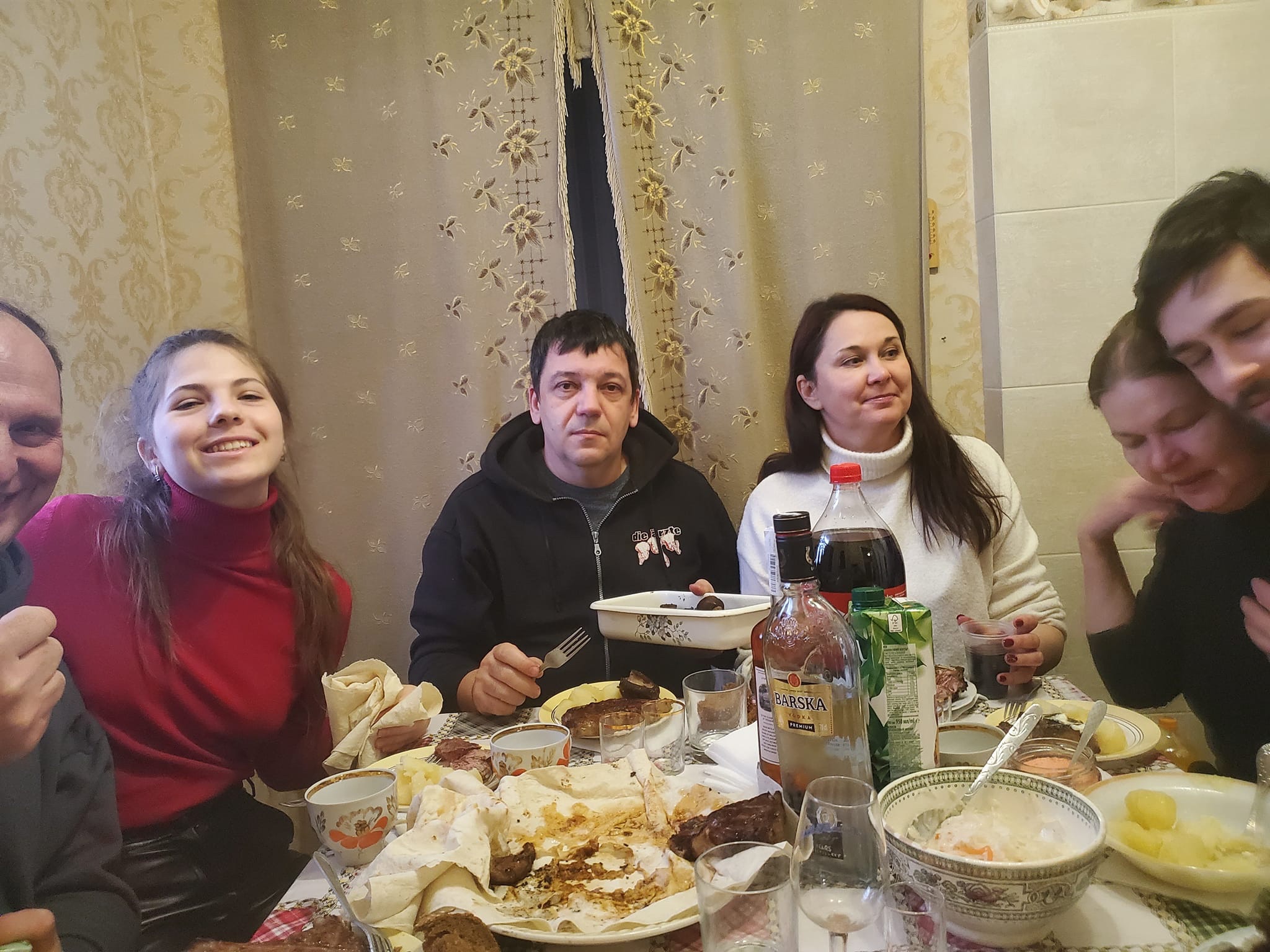
Mike at dinner with Andrey's family on January 29
So, how did a Canadian with no family or other ties to Ukraine come to be a volunteer, daily risking his life and safety?
“Twenty years ago, I went to Africa to see my foster child. When I came back we held a gala and raised a lot of money for the cause. I hope I can do something like that here,” he explained. “Also I had PTSD because of a certain situation and I tried to kill myself at one point. Coming here has cured me of PTSD. It’s been difficult at times being here, but I’m glad I came, it’s helped me personally and I hope I made a difference in some people’s lives.”
Would he go back?
“I’m 65 years old, I was told I am the oldest volunteer here. I would be glad to come back when the war is over but volunteering in Ukraine right now is really a job for younger people.”
Mike will be appearing at the Toronto Ukrainian Film Festival (TUFF) March 10-12, 2023
Share on Social Media







